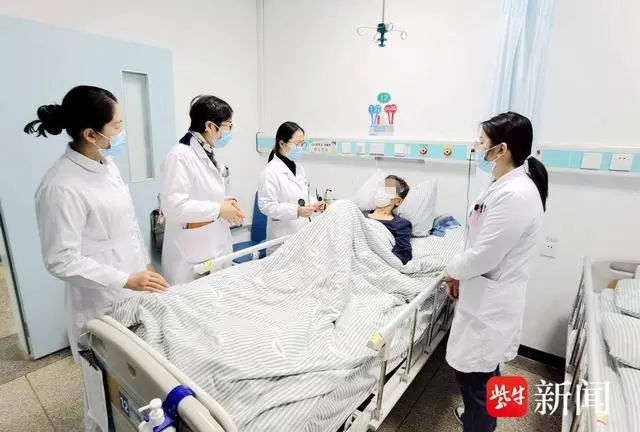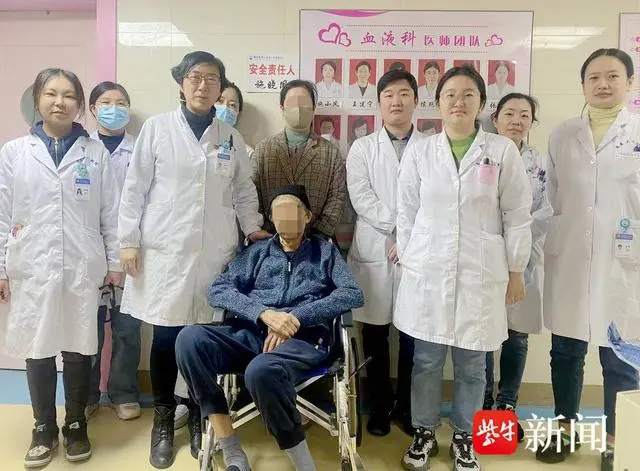Uncle Xu (pseudonym), who is over seventy years old, was diagnosed with multiple myeloma two years ago due to an accidental fall. As his condition progressed, he was unable to move and various complications plagued him. After recently receiving CAR-T cell therapy at the Hematology Department of the Second Affiliated Hospital of Nanjing Medical University, Uncle Qian began to gradually recover.

Two years ago, Uncle Xu fell and felt the pain in his back worsened. After going to the hospital for examination, he found that in addition to vertebral fractures, he also had multiple myeloma. Multiple myeloma is a cancer disease that is highly prevalent in the elderly and the second most common hematological tumor. It is still an incurable malignant hematological tumor. After falling ill, Uncle Xu began a tortuous journey of chemotherapy. During four rounds of chemotherapy, he developed heart discomfort, severe bone marrow suppression, and lung infection due to intolerance to the drugs. The chemotherapy plan was adjusted many times, but the effect was still not good. This caused Uncle Xu to suffer physical and mental torture, and his weight dropped sharply. This year, Uncle Xu’s kidney function has been deteriorating due to the progression of multiple myeloma. The extramedullary plasmacytoma has compressed nerves, causing him to become paralyzed in both lower limbs, making it difficult to defecate, and his quality of life is getting worse and worse.

In September this year, when multiple lines of chemotherapy and drugs failed to control the development of myeloma, Uncle Xu’s family learned that CAR-T cell therapy could prolong the relapse time of relapsed and refractory multiple myeloma. They came to the Hematology Department of the Second Affiliated Hospital of Nanjing Medical University to find Director Shi Xiaofeng, hoping to get a chance of survival at all costs. At this time, Uncle Xu had been bedridden for a long time and was severely anemic. His platelets were only 48 (the normal value is (100-300)×10^9/L). He needed a blood transfusion every other day. He also had bladder bleeding and had to have a catheter inserted. I had a urinary tube, I couldn’t eat, and my overall mental state was very poor. Because the clinical manifestations of multiple myeloma are diverse, they mainly include anemia, bone pain, renal insufficiency, infection, bleeding, neurological symptoms, hypercalcemia, amyloidosis, etc. Uncle Xu almost suffered from complications.
Director Shi’s team formulated a detailed diagnosis and treatment plan for him, performed three cystoscopic surgeries to stop the bleeding, and carried out active anti-infection measures to correct anemia, low platelets and other conditions. Lymphocyte apheresis was performed in September, followed by bridging therapy to reduce the tumor burden and await reinfusion. Finally, CAR-T cell reinfusion was performed in October this year. After experiencing various risks and twists and turns for more than two months, Uncle Xu’s indicators gradually returned to normal and his condition was under control. Uncle Xu said that before he could only lie in the hospital bed every day, staring at the ceiling above his head in a daze, but now he can sit half-sitting on the bed and chat with people. The traveling pain all over his body has also disappeared, and his platelets have risen to 151. Seeing the scenery outside the house from his wheelchair rekindled his hope of living.